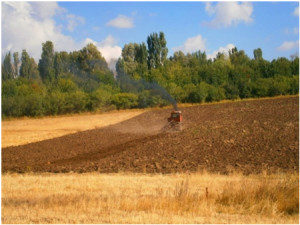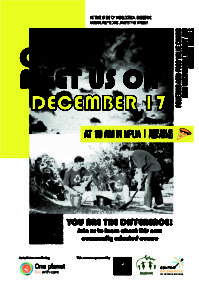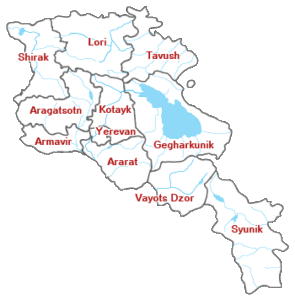2019-2020 – GREEN RANGERS OF ARMENIA FOR SUSTAINABLE LIFESTYLES AND EDUCATION (GRA-SLE)
ABOUT THE PROJECT
WHO WE ARE
The Green Rangers of Armenia for Sustainable Lifestyles and Education (GRA-SLE) is the students’ group created under the “Encouraging young specialists to power the agri-food value chains and building sustainable business models” project, which is implemented jointly by the “Armenian Women for Health and Healthy Environment” NGO (AWHHE) and the University of Chile, Energy Center (CE-FCFM).
The project is funded through the Sustainable Lifestyles and Education (SLE) programme of the One Planet Network. The SLE programme is co-led by the Ministry of Environment of Japan and the Government of Sweden, represented by the Institute for Global Environmental Strategies (IGES, https://iges.or.jp/en) and Stockholm Environment Institute (SEI, https://www.sei.org/) respectively. The project was selected through an open call for proposals for Sustainable Lifestyles and Education Programme with the financial support of the Government of Japan.
The project will contribute to the SLE programme by developing and replicating sustainable lifestyles in the academic and economic areas. In the academic area, the project will develop the Sustainable Rural Internship/Academic Program in cooperation with the Institute of Energy and Electrical Engineering of the National Polytechnic University of Armenia. The micropilot to be conducted in Solak community under this project will develop Sustainable Business Models for agri-food value chains. The university students will work jointly with the Solak community to seek and introduce various clean energy solutions along the agri-food chains that are most popular among the Solak farmers.
PROJECT OBJECTIVES
The overall objective is to promote healthier lifestyles and power agri-food value chain by developing sustainable business models and encouraging young specialists to jointly-build capacities with Armenian rural communities.
Specifically
- To promote educational and productive cooperation activities among young specialists, from universities and agricultural schools, with cooperatives, NGOs and private companies, encouraging faster renewable technologies adoption in rural communities, validating and demonstrating their effectiveness and benefits.
- To develop methodologies for analyzing the energy performance of agri-food value chains in rural communities in Armenia, identifying opportunities for better renewable energy integration, the introduction of efficiency improvements and product differentiation with local and sustainable identity.
- To introduce better lifestyles in rural communities by encouraging the development and adoption of sustainable business models and healthier agri-food production and consumption.
- To design and implement academic and internship programs to encourage and guide university and agricultural students to jointly build capabilities with rural communities, developing and implementing sustainable projects at the different agri-food value chain stages.
- To implement micropilot projects in Armenian as demonstrative experiences and Community Learning Centers (CLCs) for the student and community members.
- To identify and explore renewable energy incentive tools, including financing and net-billing instruments, developing market strategies for better product collocation and marketability
- Powering agri-food value chain examples in Armenia. The micropilot project will serve as community learning center for young specialists and template for new projects.
- Sustainable Rural Internship/Academic Programs for local universities and technical/agriculture schools.
- Methodologies and handbooks to identify and implement Sustainable Business Models for agri-food value chains in rural communities, collecting the experience and best practices developed during the micropilot implementation.
- Outreach and communication plans for both countries, showing to other local organization the technologies and the structure of the projects.
PROJECT NEWS
- Launch of the “Encouraging young specialists to power the agri-food value chains and building sustainable business models” project
- Project page at One Planet Network – Encouraging young specialists to power the agri-food value chains and building sustainable business models
- The academic program flyer
ACADEMIC PROGRAM
Partners:
- Academic institutions
- Armenian National Agrarian University (ANAU, https://anau.am/en/ ),
- the American University of Armenia (AUA, aua.am),
- Private companies
- AM Partners private consulting business company (https://www.ampartners.am/en/about.html ),
- Center for Agribusiness and Rural Development (CARD, http://card.am/en )
- Solar energy production companies (e.g. SolarEs, etc.)
MICROPILOT
SOLAK COMMUNITY
Kotayk region
The territory of the Republic of Armenia is composed of ten marzes (regions) and Yerevan city which is governed by the law on local self-government in the city of Yerevan. Public administration in the marzes is governed by RA President’s decree “On public administration in the marzes of the Republic of Armenia” and other legal acts.
Marz governors implement the regional policy of the government. They coordinate the activities of local branches of the executive authority, except as otherwise specified by law.
Solak: Needs and Opportunities
The village of Solak is located on the bank of the river Hrazdan, in Kotayk province, at 5 km south-west of the regional center. The distance from the capital Yerevan is 38 km.
Height above sea level is 1650 m. Solak has a population of 2678. The territory is 3020 square km. The community has a school, a library, a house of culture, a kindergarten and an ambulatory health care unit.
The villagers are engaged in cattle breeding, vegetableand grain growing.
COMMUNITY PARTNERS
- Solak Mayor and Administration, (contacts)
- Solak Women’s Resource Center
The Center was created in the frame of the WECF-France and AWHHE project with the Rhône-Alpes region of France . It helps the local women farmers in their agricultural activities for implementation of sustainable agriculture through the reduction of usage of pesticides, production and usage of plant tinctures, compost and biohumus and implementation of Integrated Pest Management (IPM). The women of the center grow, produce and sell the following products: dried fruit, lentils, spelt, dry beans, herbs for tea-making, honey, home-made noodles, dried squeezed yogurt, fried ground wheat, cheese, traditional bread (lavash) and pastry. With the support of the One Planet Network, the Center’s solar fruit dryer was equipped with solar panels . The women farmers who are trained in the technique of drying products by solar energy and its advantages are sharing the knowledge with women farmers from other villages. Also, with AWHHE support, the trained women farmers established an experimental plot with a small 90m2 greenhouse. AWHHE provided the necessary infrastructure, such as electricity, irrigation and drinking water supply as well as agricultural instruments and tools. Thus, the Center is creating income-generation opportunities for the women farmers.
- Water User Association (WUA) (contacts)
PHOTOS, VIDEOS AND PUBLICATIONS
- Photos
- Videos
- Publications
CONTACT US
AWHHE:
24B, Baghramyan Ave.,
Yerevan, Armenia 0019
tel. / fax. (+374 10) 523604
E-mail: office@awhhe.am
Website: https://polytech.am/
Facebook: https://www.facebook.com/polytech.am/


